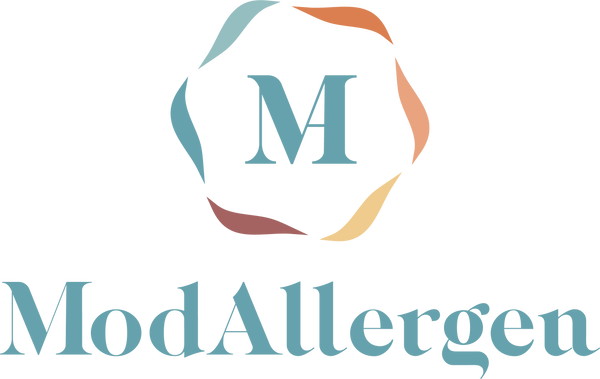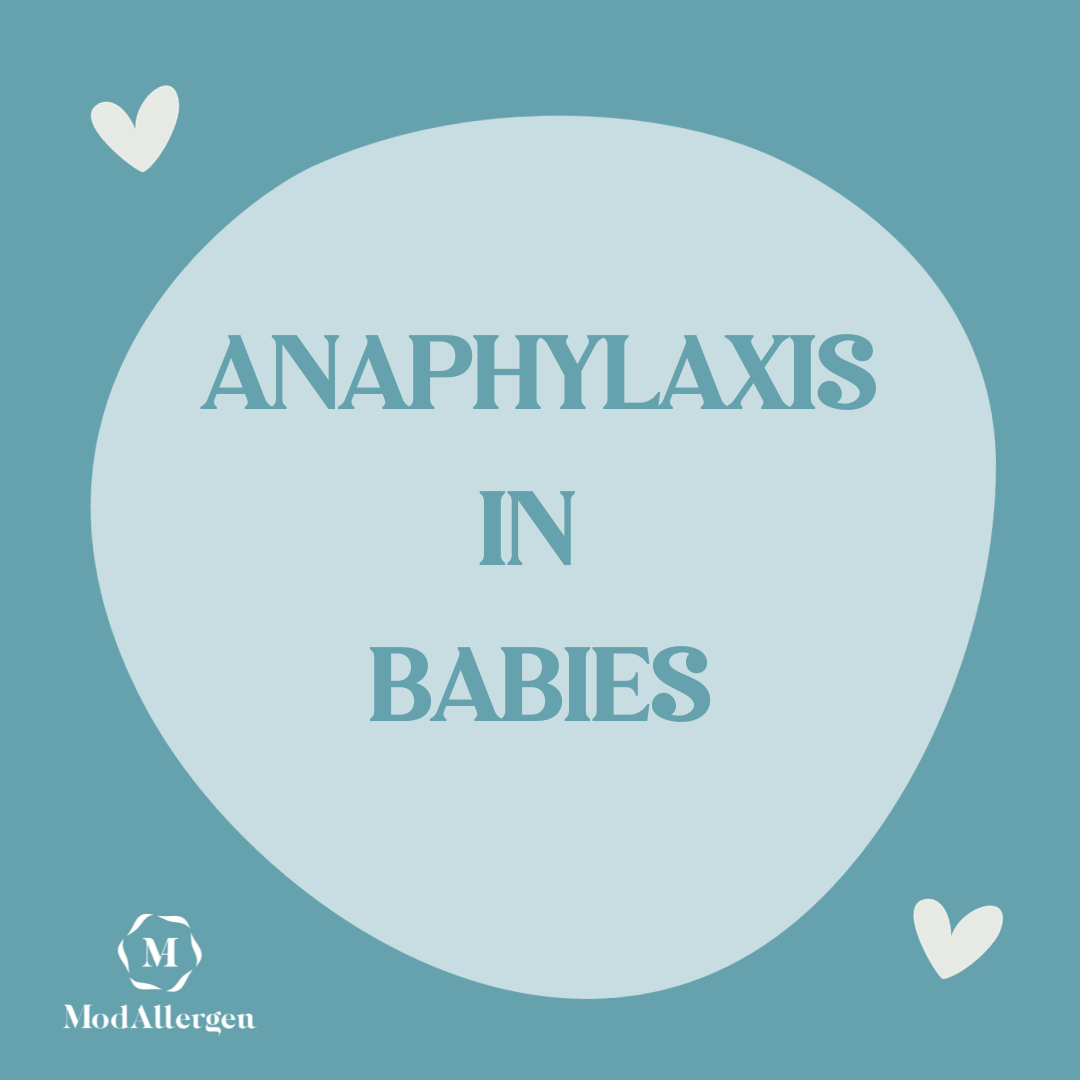Symptoms of severe (anaphylactic) allergic reactions in babies:
Severe, anaphylactic reactions may include any of the following, either alone or in combination:
- Shortness of breath, wheezing, repetitive cough
- Pale, ashen or bluish skin
- Swelling of face, lips, or tongue
- Widespread hives on body
- Repetitive vomiting
- Sudden tiredness/lethargy/seeming limp
If your child is having any of the above symptoms, call local emergency services immediately and request an ambulance with auto injectable epinephrine (Epipen). Do not wait.
New Research on Allergic Reactions in Infants and Toddlers
A lot of parents hesitate to feed their baby allergenic foods and many don't think to introduce allergens when baby is ready to start solids due to a fear that little one will have a severe allergic reaction. However, the reality of introducing these foods is not as scary as it might seem, and it's actually more beneficial and safer to feed your child allergenic foods earlier (before they turn one) rather than when they're older.
A group of researchers looked at every child that was brought into a hospital for anaphylaxis, and they found something really surprising…
The most common symptoms in infants and toddlers were skin reactions, swelling, vomiting, and diarrhoea. Signs related to the cardiovascular system – like blue-grey appearance and poor head control – were not as common as skin or gastrointestinal issues.
Babies under 1 year old almost never have breathing or heart rate reactions. When babies have allergic reactions, it looks like hives, redness around the mouth, and/or vomiting.
Some symptoms such as hoarse voice/cry are also more common in infants and toddlers. Because babies can’t talk and express what they are feeling, certain symptoms like itchy throat are more common in older populations.
Compared to older children and adults, infants and toddlers are more likely to have:
- Itching
- Rash
- Hives
- Vomiting
- Diarrhea
- Hoarse voice/cry
- Sudden behavioral change
Compared to older children and adults, infants and toddlers are less likely to have:
- Increase breathing rate
- Difficulty breathing
- Itchy throat
Medical professionals believe that the immune systems of younger children aren't robust enough yet to trigger severe reactions. Hence, discovering an allergy early on is safer.
However, it's essential to note that if a baby displays symptoms like hives and then vomits after consuming a new food, it's crucial to seek immediate medical attention, such as in an urgent care facility or emergency room. While the chances are slim that they will experience breathing difficulties, it's always best to be safe.
Lastly, introducing diverse foods early and regularly can reduce the risk of developing food allergies, offering a proactive approach to health and nutrition.

